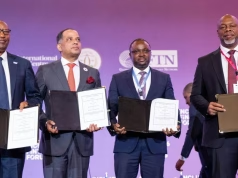The International Monetary Fund (IMF) has expressed concern over Nigeria’s lack of an effective social safety net to protect vulnerable citizens from the ongoing economic reforms. In a recent report, the IMF emphasized that despite some progress in policy adjustments since 2023, millions of Nigerians still face rising poverty and food insecurity without sufficient support systems.
In an official statement published on its website, the IMF noted that Nigeria continues to grapple with widespread poverty, weak growth, and falling per capita income. Co-authored by Axel Schimmelpfennig, the IMF’s Mission Chief to Nigeria, and Christian Ebeke, the Resident Representative, the report highlighted that although recent economic measures have delivered some stabilization, their benefits have yet to reach the most disadvantaged groups.
“Nigeria lacks an effective social safety net to cushion the impact of shocks on the most vulnerable,” the IMF stated, urging the government to scale up cash transfer programs as a critical step toward inclusive growth.
The report outlined how President Bola Tinubu inherited a fragile economy marked by declining incomes and rising unemployment. Between 2014 and 2023, Nigeria’s real per capita GDP fell by an average of 0.7% annually, with the poverty rate reaching 42% in 2023.
Despite these challenges, the IMF acknowledged the administration’s bold steps, including liberalizing the foreign exchange market, ending central bank financing of fiscal deficits, and removing fuel subsidies. These reforms have led to increased access to foreign exchange, a rise in international reserves, and a successful return to the global capital market in December 2023.
However, the IMF warned that inflation remains above 20%, power supply continues to hinder development, and oil revenues—accounting for about 30% of government income—remain sensitive to external volatility.
Looking ahead, the IMF identified three key priorities: expanding cash transfers to protect low-income households, improving budget transparency to boost infrastructure and social spending, and increasing domestic revenue to fund vital sectors like agriculture, energy, and climate resilience.
It also stressed that current tax reforms must continue to broaden the revenue base and improve compliance. Once the cost-of-living crisis eases and the cash transfer system becomes fully functional, the IMF suggested aligning Nigeria’s tax rates with those of neighboring countries.
The institution reiterated that savings generated from subsidy removal should be redirected into strategic public investments that directly benefit citizens.
“Nigeria’s potential is beyond doubt,” the IMF concluded. “But achieving it will require continued reforms and an effective social safety net to carry the most vulnerable along.”
Follow us on Instagram.
https://www.instagram.com/businessnewsng?igsh=ZXpweTdjOGF1ZXdu

























